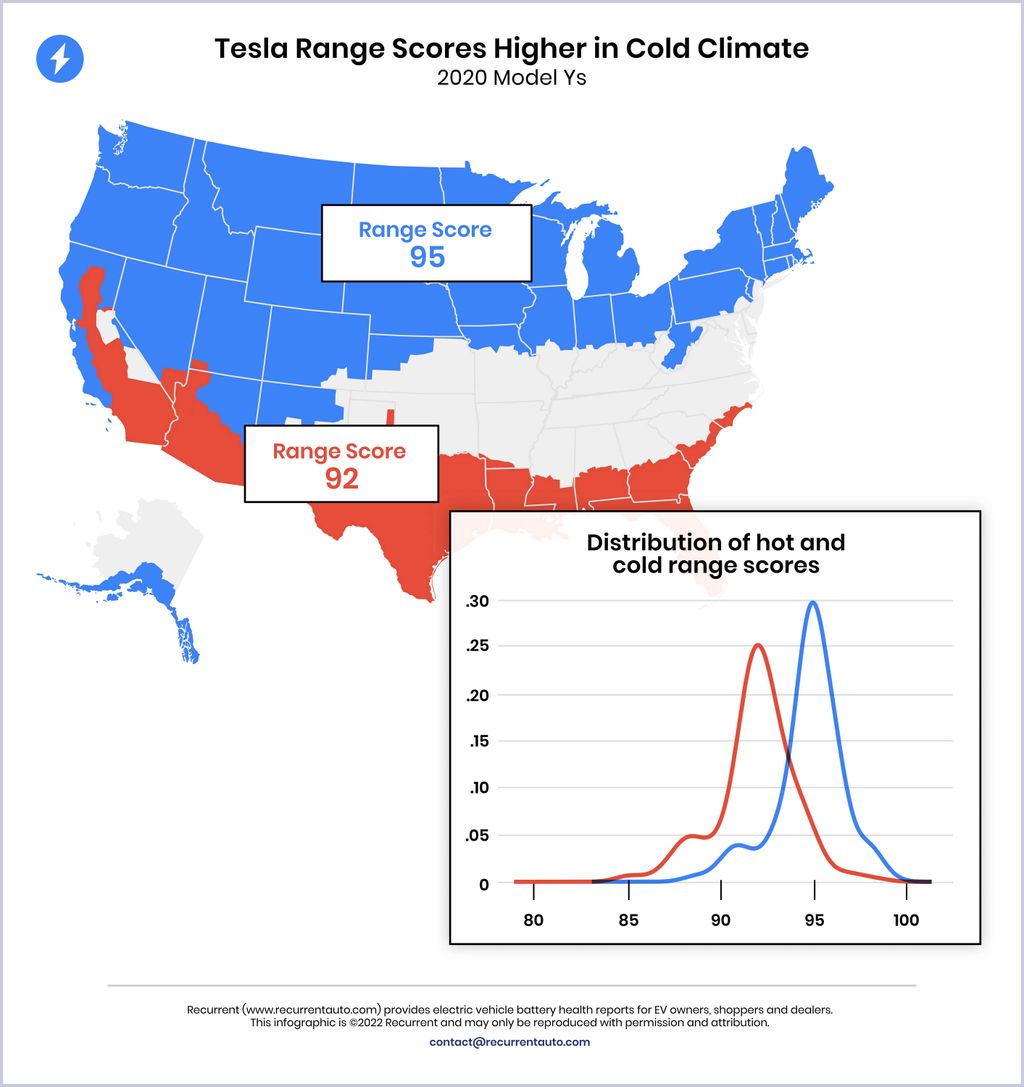Tesla Battery Longevity Slightly Better In Colder Climates: Study

The batteries of all-electric vehicles that are owned and used in cold and marine climates tend to retain more of their original range on average compared to EVs that are predominantly used in hot climates, a new study from Recurrent Auto shows.
The company, which has access to data from over 12,500 Tesla vehicles in the United States through its tracking software, assigns a “range score” to each EV battery it tracks, which is basically the range retention percentage.
As you can see in the graphic below, the average range score for 2020 Tesla Model Ys tracked by Recurrent Auto is slightly higher for cars operated in the northern-most parts of the United States where temperatures are lower on average compared to the southern-most parts.

The 2020 Model Ys that were subjected to lower temperatures have a range score of 95, which means they still retain 95 percent of their original observed range, while the EVs that were subjected to more heat get an average range score of 92.
Recurrent Auto says that it uses the observed range when new instead of the EPA range because the latter can often be inaccurate from day one. The firm adds that it chose Tesla cars because they’re the most popular EVs in the United States and among its community members and because the Elon Musk-led company uses a “very proactive” battery thermal management system that cools or heats the battery to a safe level regardless of whether the vehicle is plugged in or not.
Some EVs that were observed in the study may have lived in hot climates but still have range scores comparable to those that were used in colder climates, and the reason for this is that they were probably well protected during heat waves, with the study recommending that EV owners try to park in a garage or the shade when it’s very hot and sunny. Alternatively, if there isn’t shade anywhere, Recurrent Auto says that leaving the car’s battery halfway charged as opposed to fully charged makes a difference in the long run for, especially if the vehicle doesn’t have an active thermal management system.

As for the range losses experienced during cold weather, they are just temporary, the study shows, with the battery’s performance returning to normal when the weather, or the battery temperature, gets warmer.
Previous research from Recurrent Auto showed that the rate of range degradation in EVs that predominantly use DC fast charging is statistically similar to those that mostly use AC charging.
As always, let us know what you think about this, so head over to the comments section below to give us your opinion.